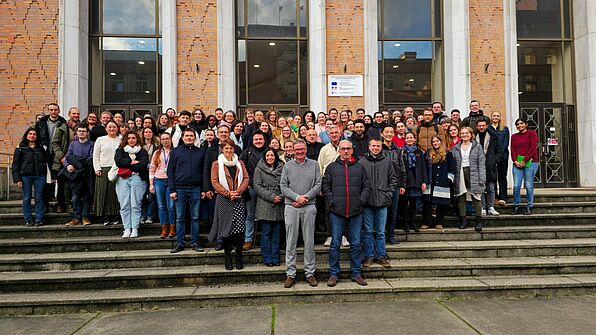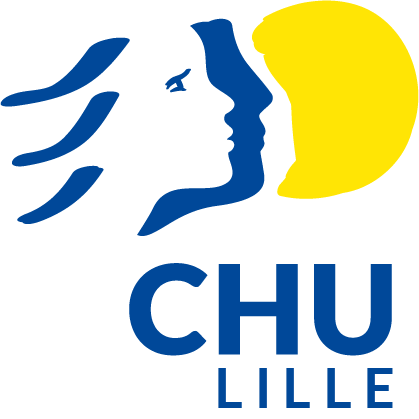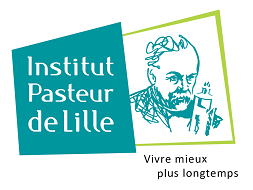
Presentation of UMR1011
The laboratory is a Mixed Research Unit (MRU) funded by INSERM, Lille University, Hospital Center of Lille and Lille Pasteur Institute.
The unit studies the biological mechanisms regulating the development and the progression of Type 2 Diabetes (T2D), Metabolic dysfunction Associated to Steatotic Liver Diseases (MASLD) and their cardiovascular complications, to develop preventive and therapeutic strategies.
To achieve this goal, the lab studies gene regulation involved in these diseases, with a focus on nuclear receptors (NRs), which are potentials therapeutics targets. Recently, the unit contributed to:
- Demonstrated the role of NRs in the perturbations of the metabolism during T2D, MASLD and their complications
- Characterized the effects of NRs in inflammatory processes in adipose tissue and vessel wall
However, all the roles of NRs in the development of T2D, MASLD and their complications are still not elucidated. To achieve these goals, UMR1011 is divided into 7 research topics:
Topic 1 (Nuclear receptor in metabolic syndrome) studies the metabolic functions of NRs (FXR, Rev-erbα, RORα) and their implication as potential therapeutic targets in pathologies associated with metabolic syndrome.
Topic 2 (Cardiac pathologies, blood flow abnormalities and hemostasis) explores the molecular signatures of haemorrhagic diseases (Willebrand’s disease, haemophilia), as well as the impact of these pathologies on vascular integrity, and the occurrence and management of cerebral haemorrhage. Finally, our team studies the consequences, causes and treatment of flow abnormalities on vascular endothelium and the degeneration of valvular bioprostheses.
Topic 3 (Immuno-metabolic dialogue in obesity and its comorbidities) studies the role of RNs in immune system cells such as mast cells and B lymphocytes in the pathophysiology of metabolic diseases, with a particular focus PPARγ.
Topic 4 (Integrated transcriptional analysis of liver diseases) identifies the molecular mechanisms of gene regulation orchestrated by NRs, in order to discover new regulatory pathways and better define molecules for therapeutics strategies.
Topic 5 (Nuclear receptors and circadian rhythms in physiopathology) has developed a new research topic devoted to circadian regulation of metabolism and inflammation, focusing on the components of the circadian clock and associated nuclear receptors, such as Rev-erbs and RORs.
Topic 6 (LivAdip - Physiomics of the liver and adipose tissue in metabolic diseases) studies the role of the liver and adipose tissue in the pathogenesis of obesity and MASLD, as well as the mechanisms of regression or persistence of the disease following weight loss.
Topic 7 (ENDO-PLAST - Roles of plasticity in endothelial cells and metabolic reprogramming in diseases, Atip-Avenir team) seeks to characterize the role of endothelial cell dysfunction in the development of cardiovascular disease and cancer.


